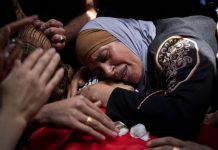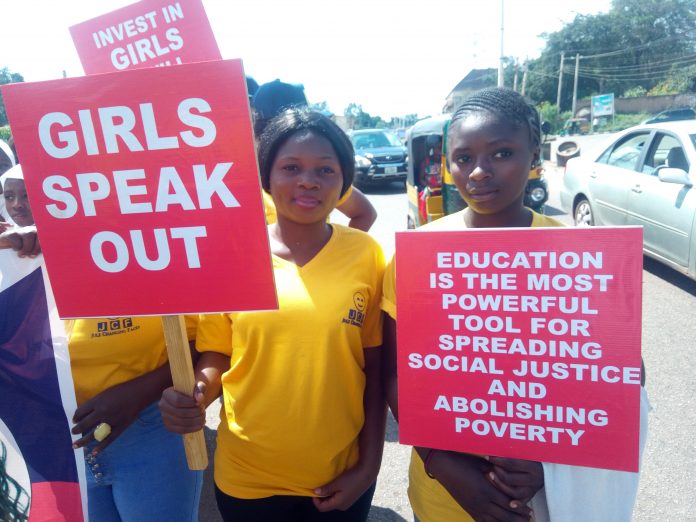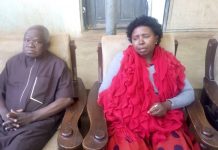NIGERIA
Religious misinterpretations, poverty, teenage pregnancy and early marriage amongst others are factors hindering the girl-child in Nigeria, as the country join other world nations to mark the Internal Day for the Girl Child.
Despite accounting for 94.2million out of the 200 million population of Nigeria, the female gender is relegated, treated as second class citizens in the country. A female child is typically perceived to be a weaker being designated to just reproduce, cook and do other household chores compared to her male counterpart.

In a bid to address this situation, the immediate past Commissioner for Women Affairs in Plateau State, Mrs. Anna Izam, called for a stop in child labour and molestation.
Izam was speaking on Friday, in Jos, at a street peace procession organised by a non-governmental organisation “Jalz Changing Faces” an organisation championing campaign against the girl-child trafficking.
She said the unfair treatment of the female child, especially in regards to education has driven a lot of concern in Nigeria as the average rural Nigerian parent would rather invest in the education of the son rather than the daughter, the former Commissioner said.

Also speaking, convener of the peace procession, and Founder of Jalz Changing Faces, Juliana Aliu, in an interview with journalists after a 3-killometer road walk, said her resolve to form the group was to fight for the right of the girl-child in Nigeria.
Aliu said the group was formed at the desire to campaign against girl child humiliation, trafficking and rights of persons with disabilities.
She said the organization has within seven years of it existence, have empowered several homeless girls in skills acquisitions to enable them become self-reliance.

However, a beneficiary of “Jalz Changing Faces” gesture, a 15 year old girl, Lahila Idris, in an interview was full of appreciations for the humanitarian services rendered her.
Idris advocated for the education of the girl child, as according to her investing in a girl child was an investment globally.
Our correspondent reports that the war to be relevant for the girl child in Nigeria starts as early as the age of five, unlike their male counterparts.

Although the narrative that a girl is an inferior gender is changing in some parts of Nigeria, the northern part of the country is especially unyielding.
Statistics show that literate women constitute only 20% from the North -West, 20% North-East, and 45% from the North Central.
The rather grim figures evinces how women are viewed compared to men in Northern Nigeria and with little or no access to education, the girl child is limited.










![[Photo]: Nigeria’s Armed Forces Remembrance Day [Photo]: Nigeria's Armed Forces Remembrance Day](http://skynewsafrica.net/wp-content/uploads/2019/01/DSC_0678-100x70.jpg)











![2018 Sports Review: Winners, losers and questions facing African football 2018 Sports Review [1]: Winners, losers and questions facing African football](http://skynewsafrica.net/wp-content/uploads/2018/12/caf1-100x70.jpg)
![Watch: The harrowing moment a taxi flies into pedestrians in Ballito SA [video]](http://skynewsafrica.net/wp-content/uploads/2018/12/acci2-100x70.png)

